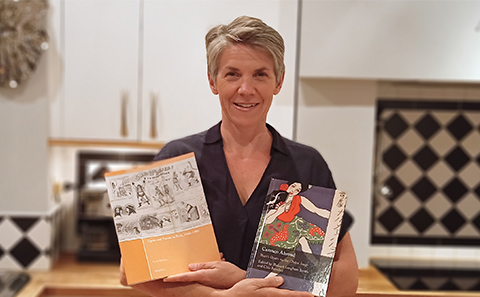A two day Hartley Residency Seminar

- Date:
- 13 - 14 October 2021
- Venue:
- See dates and locations below
Event details
Two days of events at the University of Southampton.
Locations
13 Oct 10-12:00 is B46/2003 LTB
13 Oct 16-18:00 is B06/1077 LTA
14 Oct 15-19:00 is B46/2003 LTB
Event details:
13 October -
Day 1 – 11.00-12.30 – Introductory seminar for postgraduates - 90 minutes
[Lunch]
Day 1 – 14.00-15.30 – PGR Workshop or PGR one-to-one meetings with speaker - 90 minutes
[30 minutes break]
Day 1 – 16:00–17:30 –'Opera and Parody in Paris, 1860-1900' (Clair Rowden)
Day 1 – 17:30 – drinks – Arlott Bar
Day 1 – 18:30 – dinner
14 October -
Day 2 – 14.00-15.30 – 'Marginalised Forms, and Principles of Parody: Paris in the Long Nineteenth Century' (Mark Everist)
[30 minutes break]
Day 2 – 16:00–17:30 – Roundtable: 'Carmen Abroad: Music in the French Theatre and Cosmopolitanism' (Clair Rowden, Anisha Netto, William Osmond and Tom Irvine)
Speaker information -
Clair Rowden is Reader in Musicology at Cardiff University. Her research deals with opera, musical theatre, reception, stage production, singers, dance and iconography in nineteenth-century France. Recent publications include Opera and Parody in Paris, 1860-1900 (Brepols, 2020) and the co-edited volume (with Richard Langham Smith) Carmen Abroad; Bizet's Opera on the Global Stage (CUP, 2020), a transnational history of the performance of Bizet's Carmen which is richly supplemented by the website www.carmenabroad.org which Rowden curates. Current research projects deal with operatic material cultures and singers' jewellery.
Opera and Parody in Paris, 1860-1900
Parody was a significant cultural phenonemon in nineteenth-century Paris and in this paper, I investigate the relationship between press and staged revues – their shared aesthetics and modi operandi – as well as conditions of readership/spectatorship and humour. This introduction will also pose methodological questions regarding the examination of 'ephemera' such as newspapers and unpublished texts and scores. When parody collides head on with the opera repertoire and contexts of reception of Italian, German and French opera in the nineteenth century, the musicologist's interest is doubly piqued! I will therefore draw upon 4 staged examples, given over a period of 35 years, to demonstrate specific musical and theatrical procedures of the parodical genres and how the parodical shows reflected, interrogated and helped cement the operatic canon by the last years of the century:
- Hervé's Les Troyens en Champagne, given (once) at the Théâtre du Palais-Royal on 30 December 1863, following the premiere Berlioz's Les Troyens à Carthage at the Théâtre-Lyrique on 4 November.
- The end-of-year revue Boum! Voilà! by Clairville and Loirat, given at the Théâtre de l'Athenée-Comique on 31 December 1876, following the publication in French of Wagner's spoof libretto Une Capitulation and the first Bayreuth festival.
- La Petite Salammbô by Adrien Vély and Alévy, given at the Théâtre Déjazet in late September 1892, following the Parisian premiere of Reyer's opera on 16 May.
- Les Maîtres Chanteurs de la Butte, fantaisie-parodie by Jules Oudot and Henry de Gorsse with music by Émile Bonnamy, given at the Trianon Theatre on 17 December 1897, shortly after the Opéra premiere of Wagner's Les Maîtres Chanteurs de Nuremberg.